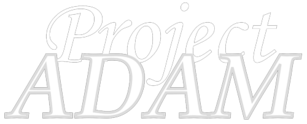Residential Treatment
Project ADAM is CARF certified to provide ASAM Level III.1 Residential treatment to any male age 19 or older who is seeking help for overcoming a substance abuse problem or is court-ordered to one year of residential treatment. Our residential treatment program is a minimum of 12 months and includes group/individual therapy, family therapy, trauma therapy, anger management, Moral Reconation Therapy, support group meetings, job coaching, budgeting, relapse prevention planning and transition to independent living. Clients must call for an initial interview or fill out our online questionnaire. Based on eligibility and bed space, we will contact you with further instructions. Clients who are currently receiving disability, have sex offenses or violent offenses on their criminal record, or are unable to maintain employment are not eligible for entry to Project ADAM’s residential program but can be served through our outpatient programs.
Description of Recovery Residence
The Project ADAM Recovery Residence, a 39-bed, level III.1 treatment facility, provides a family-like atmosphere, where residents, under the guidance of trained staff, work to overcome the problems related to chemical dependency for a minimum of 12 months.
Project ADAM combines principles used in such groups as Alcoholics Anonymous with Christian-based individual and group therapy. Every opportunity to assist each individual’s recovery is explored, including vocational and educational guidance. The program provides lodging, meals, utilities, transportation to scheduled events, as well as group and individual counseling, at a minimal cost. Residents are expected to maintain sobriety and obtain employment while participating in a structured program.
Project ADAM accepts referrals to the program from the Criminal Justice System for individuals who have committed non-violent offenses and who present minimal risk to the community. A resident may also enter the center through self-referral or referrals from a family member, a hospital or some other assistance agency. All residents must be medically evaluated and determined to be alcohol- and drug-free before entering the facility.
Upon admission, residents will complete a comprehensive orientation to our program. This orientation process helps the new resident adjust to the program. Upon completion of orientation, residents are expected to begin looking for work. Project ADAM allows residents to work first or third shifts, which makes it easier for them to find jobs.
A resident must complete 12 month-long phases to graduate from Project ADAM. Beginning in Phase I, residents are required to participate in educational groups, which focus on recovery dynamics, including 12-step and Biblical teachings. Residents are also required to participate in individual counseling as well as attendance at AA and NA meetings. Church attendance is encouraged and is an important part of the resident’s recovery. Residents are also required to assist in building and room chores.
In Phase II and III, residents are required to maintain active involvement in all aspects of the program. Individualized treatment plans are developed to assist residents in achieving both short- and long-term goals. Residents are also eligible for 12-hour passes on the weekends.
In Phase IV, after a resident has been at Project ADAM for 90 days and is doing well in his recovery program, he may begin receiving two 12-hour passes on the weekends. Residents in each phase of the program are required to submit to random drug screens. Other components include recreational activities and job placement assistance. During Phase V, residents are eligible for a 36-hour pass on the weekends and in Phases VI and VII, residents are allowed to receive 48-hour passes on the weekend.
Project ADAM evaluates the effectiveness of the Recovery Residency by providing accurate and current intake and record-keeping procedures on residents. Follow-up procedures include: close supervision through probation and parole officers; monitored attendance at Aftercare sessions; encouragement for graduates and their families to remain in close contact with Project ADAM through phone calls, visits and attendance at family groups.
Residents have access to vocational rehabilitation services, literacy training, financial counseling, GED classes and Aftercare meetings. Residents are also encouraged to participate in various volunteer and philanthropic activities.
What to bring to residential treatment
Casual, conservative clothing (Laundry service available.)
Additional clothing for recreational outings.
Shower shoes (flip-flops).
Comfortable shoes.
Small radio or tape player.
Cash for personal account to cover incidentals. (Clients are allowed $40 weekly.)
Any 12-step literature you may have
Insurance card
Photo ID
Social Security Card
Birth Certificate
All medications currently taking and reasons for taking
Toiletries (shampoo, soap, deodorant, etc.)
Cell phone
The following items are not allowed:
Cameras
Electronic readers
Personal computers
Valuable jewelry or other items of value

